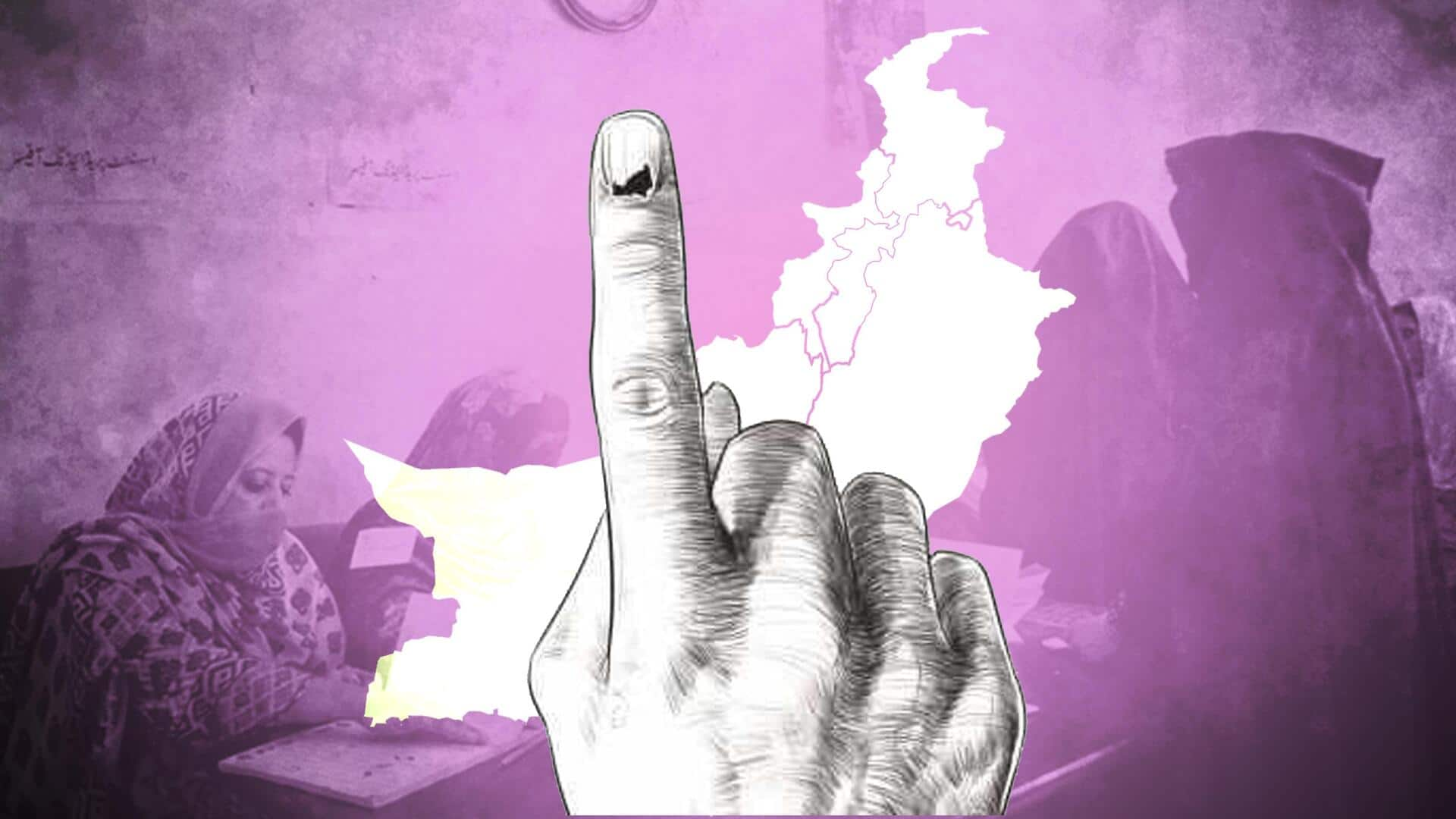
Why women in this Pakistan village are barred from voting
What's the story
A total of 12.85 crore voters will exercise their franchise in Pakistan's parliamentary elections on Thursday. Unfortunately, the women of Dhurnal village in Punjab will not be among them. Despite voting being a constitutional right for all adults, certain rural areas in Pakistan are still dominated by patriarchal male village elders, who wield considerable influence. Dhurnal is one such example where women have been prohibited from voting for more than 50 years.
Context
Why does this story matter?
The practice of not allowing women in the family to vote is still prevalent in some regions of Pakistan, despite several efforts by the government to increase the female voter percentage. To limit such incidents, the Election Commission of Pakistan has stressed that it has the authority to declare the process null and void in any constituency where women are barred from participating. However, progress has been slow on the ground.
Vote ban
Reasons behind barring women from voting in some regions
In Dhurnal, men provide various explanations for the decades-long prohibition on women voting. Village council member Malik Muhammad attributes it to a time of low literacy rates when women were needed for household and childcare duties. Shopkeeper Muhammad Aslam claims the ban is in place to shield women from "local hostilities" tied to politics, while others simply cite "tradition." Recently, religious authorities in Khyber Pakhtunkhwa province had declared it un-Islamic for women to engage in political campaigns.
Women's response
Women fighting for their right to vote
The women of Dhurnal, however, argue otherwise. Robina Kausir, a 40-year-old healthcare worker, shares that many women in the village want to vote but fear community backlash, including the threat of divorce. She believes that smartphones and social media have increased access to information. With her husband's support, Robina arranged transportation for women to the local polling station in 2018 and plans to do so again on Thursday. "I was abused but I...will keep fighting for...right to vote," she declared.
Misinterpretation of Islam
Women's rights activist Fatima Tu Zara on misinterpretation of Islam
Fatima Tu Zara Butt, a legal expert and women's rights activist, asserts that Islam permits women to vote, but said that religion is often misused and misunderstood in Pakistan. She explains that "regardless of their level of education or financial stability, women in Pakistan can only make decisions with the 'support' of the men." Interestingly, Pakistan elected the world's first Muslim woman leader, Benazir Bhutto, in 1988, who fought against religious extremism and promoted women's access to education and finances.
General elections
Only 355 women are contesting in general elections
More than 30 years later, the gender divide between men and women doesn't seem to have changed much in Pakistan. Only 355 women are contesting in Thursday's election, compared to 6,094 men. Pakistan reserves 60 of its 342 National Assembly seats for women and 10 for religious minorities, and political parties rarely allow women to run outside of this quota. Even where women are nominated, they are relegated to constituencies where they have little chance of winning.
Poll reforms
Elections Act passed in 2017
Progress in women's voting rights, however, hasn't always been this grim in the country. In 2017, the parliament passed the Elections Act, which requires the ECP to declare an election invalid if women's turnout is less than 10%. The following year, the ECP ordered a re-election in Shangla's constituency over low female voter turnout.